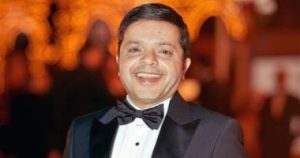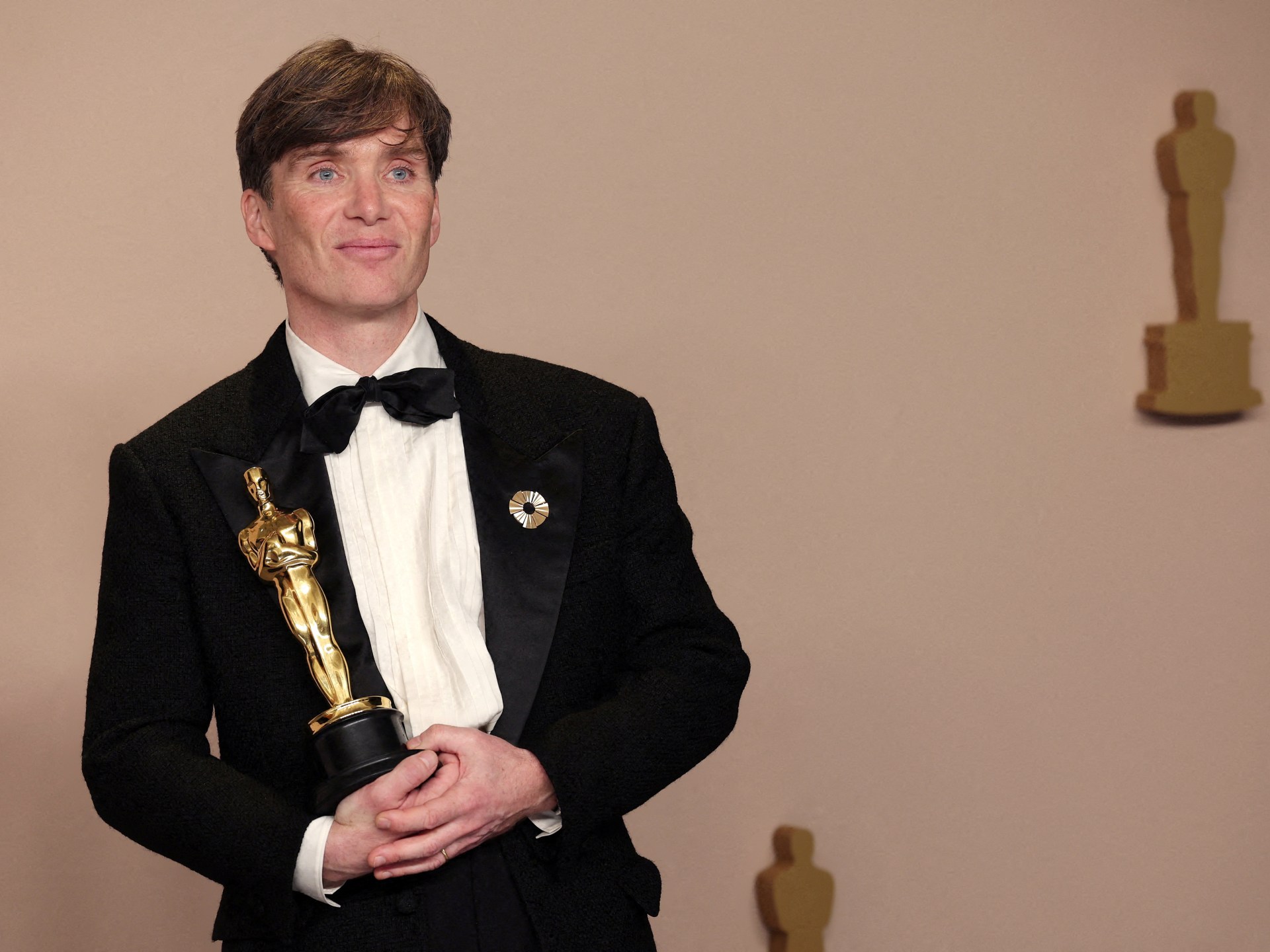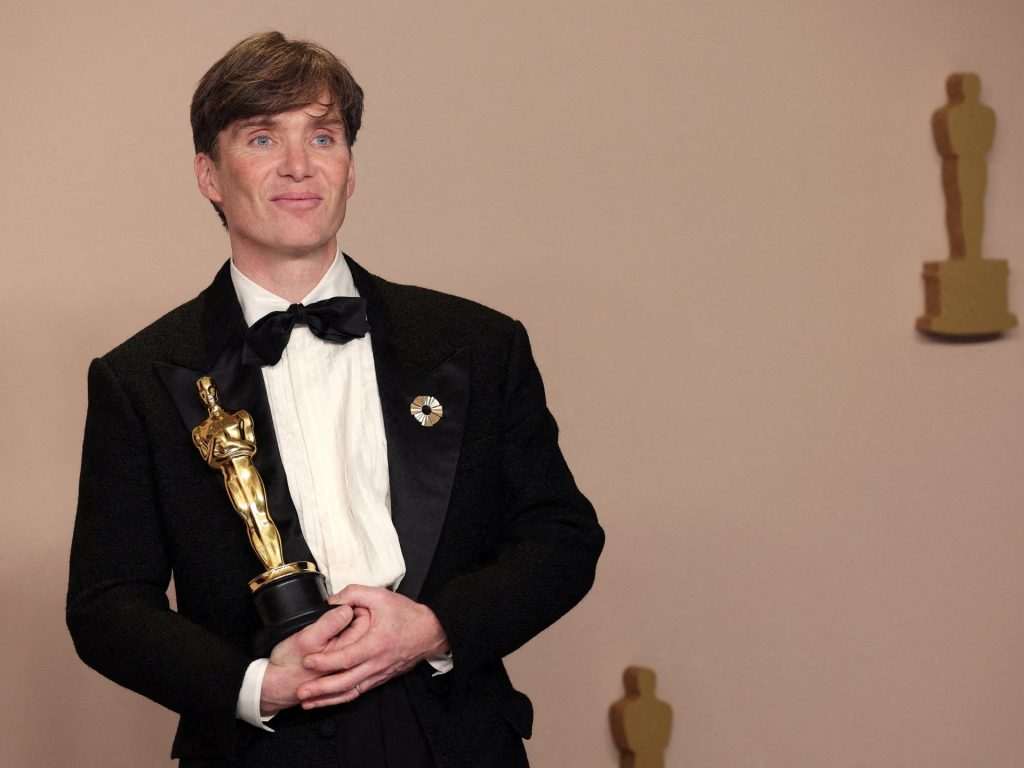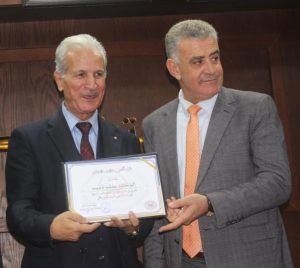Cillian Murphy is hard to categorize: Is he the Oscar-winning star, the man whose talent blossomed globally late, or the quiet artist who prefers a routine life in his Irish village over the hustle of Los Angeles?
Born in Ireland, Murphy spent about 15 years in London before returning to his homeland a few years ago, achieving success he himself did not expect during this period, including an Oscar, and remarkably diverse roles. Viewers often wonder: is he the fierce gangster or the quiet Irish coal seller who fears being shunned by his neighbors?
Murphy was born into a modest family of teachers in the Douglas suburb of Cork, Ireland. His mother taught French, his father also worked in education, and his grandfather, aunts, and uncles were teachers as well.
Young Cillian attended a private boys’ school, then enrolled in law at University College Cork, or at least tried to, as he failed his first exam, saying he “did not have the ambition to do it.”
At 19, he left university to start his career as an actor in the play “Disco Pigs,” playing Darren opposite young actress Eileen Cassidy as Sinéad, two Cork youths caught in a passionate yet unhealthy relationship.
Before this play, Murphy dreamed of a loud rock singer career, but the success of “Disco Pigs” changed his path completely, as the play was very popular, prompting him to consider a future as a professional actor.
Originally scheduled for a 3-week run in Cork, the play’s huge success turned it into a two-year tour across Europe, Canada, and Australia. During this time, Murphy left university and distanced himself from his band, although he intended to return to music someday.
Fate had other plans: an agent attended the play, discovered Murphy’s talent, and offered him professional representation. From there, his artistic career took off, step by step, away from the music he loved initially, toward the screen that made his name.
When Murphy decided to leave college, he felt he was shedding a pointless burden. The decision was not a losing gamble but an open space to try something he had never dreamed of since childhood. He was not one of those who grow up wanting to be actors at any cost but saw the experience itself as enough: “If nothing happens, I won’t lose anything.” Thus, he plunged into acting with a step that seemed casual but changed his life path, with luck on his side from the start.
In 2001, Murphy reprised the role that launched his stage career in the film adaptation of “Disco Pigs,” but by then he was no longer an obscure young man seeking a chance but a rising star attracting attention with exceptional talent and a unique presence.
Murphy made his name in British and Irish cinema before his popularity exploded in the United States years later. He solidified his presence with notable works such as the horror film “28 Days Later” (2002), and his distinguished performance as Damian O’Donovan, an Irish independence fighter, in “The Wind That Shakes the Barley” (2006). In both, he showed exceptional ability to adapt and embody characters, confirming his world-class talent, a success not by chance but a natural result of artistic mastery placing him among the greats.
The role that changed his career entirely came with Thomas Shelby in the famous BBC series “Peaky Blinders,” which began airing in 2013. He portrayed the gang leader returning from World War I, broken by PTSD, blending cruelty and internal fragility with rare depth.
Despite his strong local roots at that time, some recognized his true value: the global director Christopher Nolan, who worked with him on five of his most prominent films, including the “Dark Knight” trilogy starting in 2008, “Inception” (2010), and “Dunkirk” (2017). Nolan said about Murphy:
“I knew from the first time I met him—nearly 20 years ago—that he is one of the greatest actors, not just of his generation but of all time.”
The peak of this long collaboration came in summer 2023 when Murphy was cast as the lead in “Oppenheimer.” With this role, Murphy not only took a new step in his career but jumped to another level of fame and global recognition, cementing his status as one of the greatest and most influential actors of his generation. He won the Oscar for Best Actor for this performance, while Nolan won his first Oscar for Best Director.
Murphy’s uniqueness extends beyond his acting talent to his striking appearance, making him stand out among his peers. His distinctive features can reflect a wide range of emotions. His strength lies in his ability to move between intense, dramatically charged roles and others that are more delicate and calm, without losing his sincerity or commanding presence. He is known for fully immersing himself in his characters, seeming to dissolve into them. This flexibility makes him an actor difficult to confine to a single mold, but rather a constantly renewing artist.
Some might have thought that the Oscar and Hollywood success would push the Irish actor into the noisy world of stardom, but he chose the opposite path. In February 2024, alongside Alan Moloney, he founded the independent production company “Big Things Films,” reflecting his desire to approach filmmaking differently.
He combined producing and acting in the historical drama “Small Things like These,” which premiered at the 74th Berlin International Film Festival, telling a local story set in the Irish countryside about a man facing an unexpected moral test.
Murphy is also preparing to return to Thomas Shelby’s character in the film “The Immortal Man,” which will continue the series’ story, giving audiences another chance to dive into the world of the famous gang and its complex struggles.
Despite all his artistic achievements and global fame, Murphy remains different in his personal life choices, characterized by humility and simplicity that keep him away from the noise of fame, preferring a quiet life in stark contrast to Hollywood’s glitter, which he possesses all the elements of but chooses voluntarily to stay distant from.














Recommended for you
Exhibition City Completes About 80% of Preparations for the Damascus International Fair Launch
Talib Al-Rifai Chronicles Kuwaiti Art Heritage in "Doukhi.. Tasaseem Al-Saba"
Unified Admission Applications Start Tuesday with 640 Students to be Accepted in Medicine
Egypt Post: We Have Over 10 Million Customers in Savings Accounts and Offer Daily, Monthly, and Annual Returns
His Highness Sheikh Isa bin Salman bin Hamad Al Khalifa Receives the United States Ambassador to the Kingdom of Bahrain
Al-Jaghbeer: The Industrial Sector Leads Economic Growth